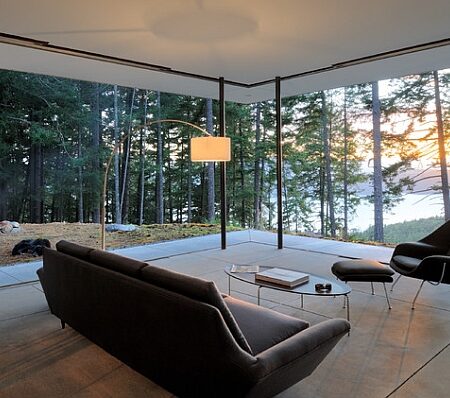In a world that often equates success with accumulation, the concept of minimalist living offers a refreshing counter-narrative. Embracing minimalism is about more than just cleaning out your closet; it’s a lifestyle shift that can bring profound mental and physical benefits. Here’s why adopting a minimalist lifestyle might be the best decision you ever make.
Understanding Decluttering vs. Minimalism
First, let’s differentiate between decluttering and minimalism. Decluttering involves removing items from our homes that are no longer needed and are creating crowded messes or confusion. It’s about clearing out the physical clutter to create a tidier space. Minimalism, on the other hand, not only removes clutter but also challenges our assumptions about how much we actually need. It’s about searching for the optimal amount of possessions in our home and life, rejecting society’s prescriptions about the size of our home, the number of clothes in our closet, or the number of toys in our child’s bedroom. Minimalism helps us discover how little we actually need to accomplish our purpose and goals.
Mental Clarity and Focus
One of the most immediate benefits of decluttering and minimalism is the mental clarity it brings. A cluttered environment can be overwhelming and distracting, making it difficult to focus on the tasks at hand. By simplifying your surroundings, you reduce mental noise and create a calm, serene space that promotes concentration and productivity.
When your home is free of unnecessary items, your mind feels lighter. You’re no longer weighed down by the constant visual reminder of things you need to organize or clean. This newfound clarity allows you to focus on what truly matters, whether it’s a personal project, quality time with loved ones, or simply enjoying a moment of peace.

Reduced Stress and Anxiety
Living in a cluttered space can contribute significantly to stress and anxiety. The sight of piles of clothes, stacks of papers, and random knick-knacks can make your home feel chaotic and unmanageable. This physical clutter translates into mental clutter, leaving you feeling overwhelmed and anxious.
Minimalism encourages you to let go of things that no longer serve a purpose or bring you joy. As you declutter, you create a more organized and peaceful environment, which in turn reduces stress levels. Imagine coming home to a tidy, tranquil space where everything has its place. The reduction in stress can have a profound impact on your overall well-being, making you feel more at ease and in control of your life.
Improved Physical Health
Adopting a minimalist lifestyle can also have tangible physical health benefits. A clutter-free home is easier to clean and maintain, reducing the risk of dust, allergens, and mold that can impact your health. With fewer items to navigate around, there’s less risk of tripping or injuring yourself.
Enhanced Creativity and Productivity
A minimalist environment can significantly boost your creativity and productivity. When your space is free from distractions, your mind is free to wander and explore new ideas. This is particularly beneficial for creative pursuits, as a clean, open space can inspire fresh thinking and innovation.
Productivity also improves when you’re not constantly distracted by clutter. With fewer items competing for your attention, you can devote more energy to the tasks that matter most. Whether you’re working from home, pursuing a hobby, or managing household chores, a minimalist approach helps you stay focused and efficient.

Financial Freedom
Minimalism is not just about physical space; it also extends to your finances. By embracing a minimalist lifestyle, you become more intentional with your spending, focusing on what you truly need rather than succumbing to impulse purchases. This shift can lead to significant financial savings, allowing you to allocate resources to experiences and investments that bring long-term satisfaction and security.
Reduced spending on non-essential items means more money in your pocket for things that enhance your life, such as travel, education, or building an emergency fund. Financial freedom can reduce stress and provide a greater sense of security, contributing to overall happiness and well-being.
Environmental Benefits
Living minimally also has positive implications for the environment. By consuming less and being more mindful of your purchases, you reduce your ecological footprint. Minimalism often goes hand-in-hand with sustainability, encouraging practices such as recycling, upcycling, and supporting eco-friendly brands.
When you choose quality over quantity, you’re less likely to contribute to the cycle of fast fashion and disposable goods that harm the environment. Adopting a minimalist lifestyle means making more thoughtful choices that support a healthier planet, from reducing waste to conserving resources.
Lasting Life Change
Finally, minimalism forces intentionality, stripping away the excess to align your actions with your values. This short-term action can lead to long-term change, creating a more purposeful and fulfilling life.
In conclusion, minimalist living offers a host of mental and physical benefits that can enhance your overall quality of life. By decluttering your space and adopting a simpler lifestyle, you can enjoy greater mental clarity, reduced stress, improved physical health, and stronger relationships. Moreover, minimalism fosters financial freedom and environmental sustainability, making it a holistic approach to living well. So, why not take the first step towards a minimalist lifestyle and experience the transformative benefits for yourself?


